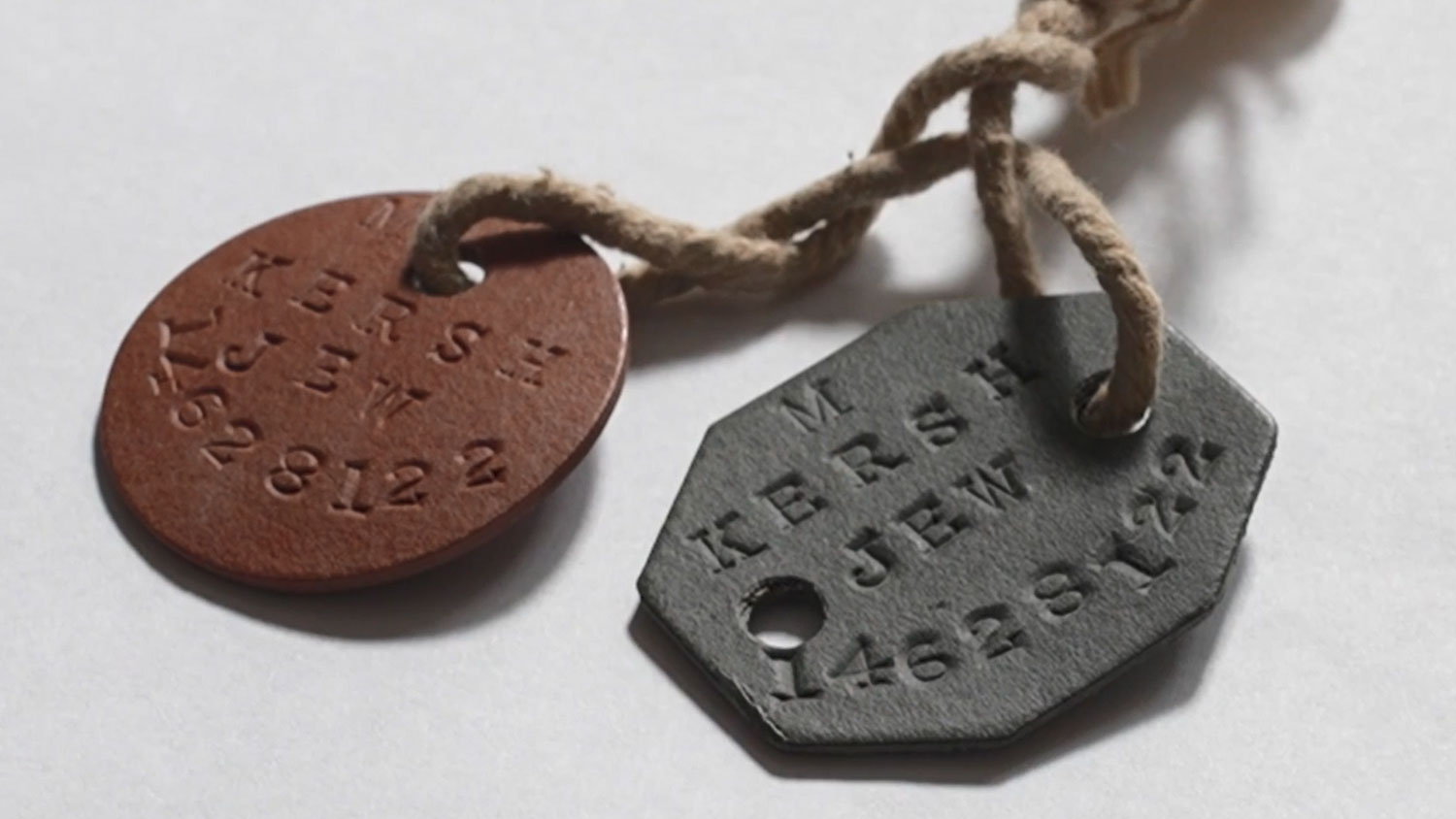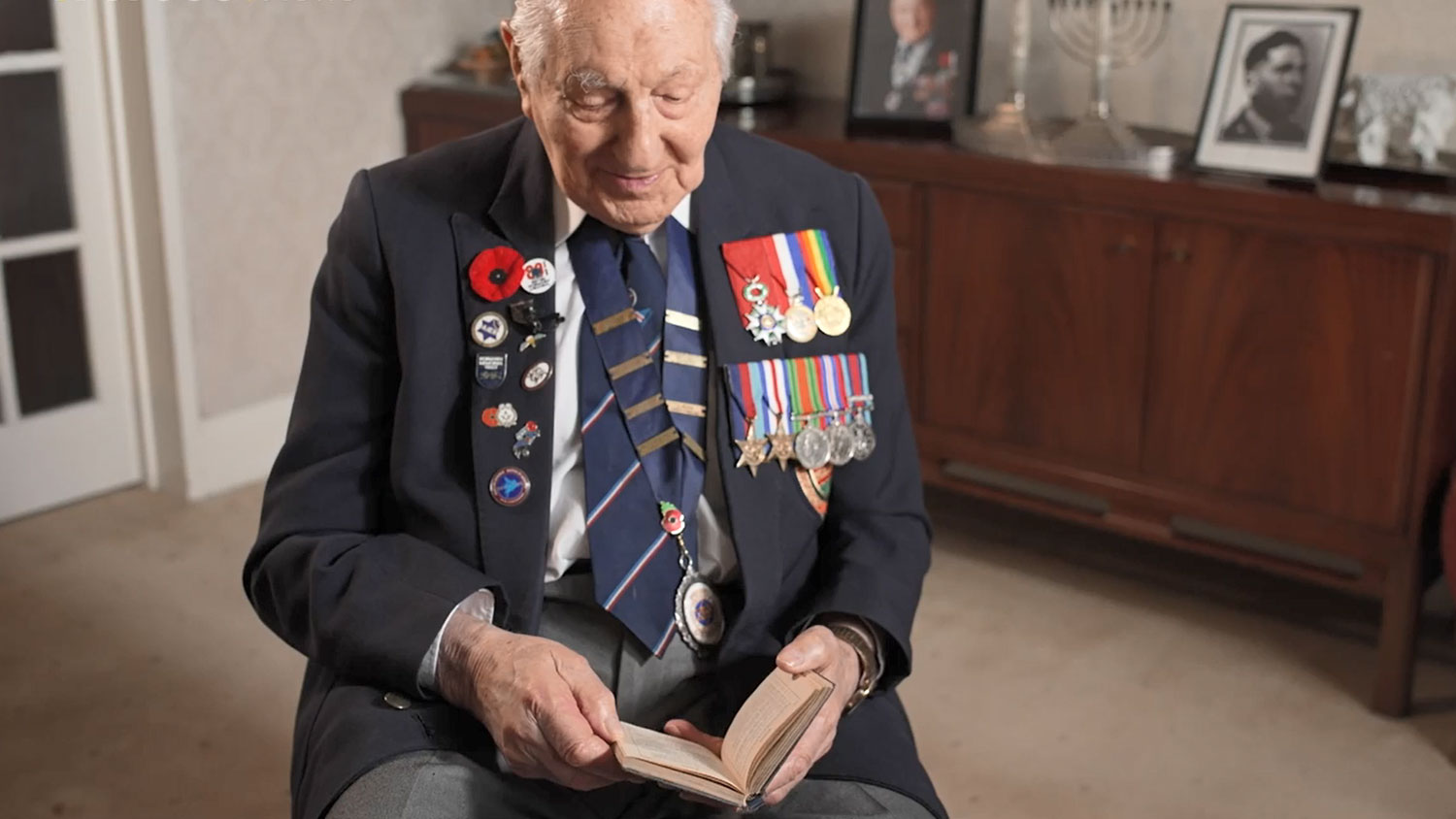Mervyn Kersh, the D-Day veteran who wore his Jewish dog tags despite threat of capture
A D-Day veteran who proudly wore dog tags declaring he was Jewish has been speaking of his determination to not hide his identity despite the risk of what might happen to him if he was captured.
Mervyn Kersh, 99, knew many Jewish service personnel in the Second World War who, to protect themselves, would choose to have dog tags stating their religion was Church of England.
Speaking with Forces News in the run-up to the 80th anniversary of D-Day, he said: "I knew plenty of Jewish boys, or men who joined the Army and had on their dog tags CofE, but I didn't – I kept it at 'Judaism' or 'Jew' on it.
"I know there's a possibility of being caught and you don't know what's going to happen if you're caught.
"We knew what was going on in the killing camps in 1942, it was in the paper.
"So I did feel perhaps an extra urge or an extra sincerity, if you like, determination, that's the best word, than my comrades who weren't particularly interested in why they were fighting, just that they were fighting."
Mr Kersh has written about his life in great detail on his personal blog.

The moments he shares with his readers are deeply personal, including some encounters with German soldiers after the end of the war.
He said: "I met many 'loose' [lost their units] dishevelled German soldiers as I had in each country and prisoners who were on their way to PoW camps.
"The Master Race looked quite different from the newsreels of them goose-stepping all over Europe.
"I quite enjoyed telling them that I was Jewish and would say 'Ich bin eine Jude' meaning 'I'm a Jew' which seemed to shake their belief that Jews never fought and were cowards."
The former private with 17 Vehicle Company, Royal Army Ordnance Corps (RAOC), who joined the British Army at the age of 18 in 1943, had assumed he would join the Royal Engineers as his hobby was map-drawing.
However, due to what he was told was a clerical error, Mr Kersh's military role became to supply weapons, ammunition and equipment to the British Army.
In June 1943, three days after the Normandy Landings, he and his fellow soldiers stepped ashore in sector Jig on Gold Beach as planned.
What he saw and heard immediately brought home the brutal reality of what the soldiers who had landed since 6 June 1943 had faced.
In the midst of chaos and fear, a small book brought the young soldier hope.
He said: "You heard the shells going over from the land and the big ships firing these huge shells back.
"It was then I began to realise that it was war and not an adventure or a practice and what might happen.
"And I did get frightened. That's when I read my Book of Psalms."
Mr Kersh had been given a pocket-sized Book of Psalms before D-Day and the soldier found its presence comforting.
Reading from his book, he said: "My adversaries are all before me and before thee.
"Reproach of broken hearts and broken my heart.
"I'm so sick and I looked for some to show compassion, but there was none."

Less than a year after D-Day, Mr Kersh was among the British troops involved in the liberation of Bergen-Belsen concentration camp.
Face to face with the horrors inflicted upon skeletal Jewish men, women and children – and anyone else the Nazis thought threatened their aim of a "pure Aryan race" – Mr Kersh desperately wanted to help.
In his blog he speaks of the time he spent at Hanover railway station with hundreds of Jewish survivors hoping to discover if their loved one had survived Hitler's persecution.
He said: "I gathered food, mostly chocolate, which I exchanged for my cigarette ration as I usually did, and collected even more donations in chocolate.
"These I took to the station to give out.
"I later learned that chocolate was probably the worst food to give starving people."
Mr Kersh was later sent to Belgium, explaining: "I was given a train warrant and left Celle and Belsen behind me. I travelled on a sealed train for 30 hours non-stop to Bruges Reinforcement Holding Unit and during that time the carriage was my whole world.
"It was only when we detrained on 9 May in Bruges that I learned that the War was over – at least in Europe. I had missed VE-Day.
"The 1,000-Year Reich had collapsed after 12 years of wreaking destruction and mayhem throughout Europe."









